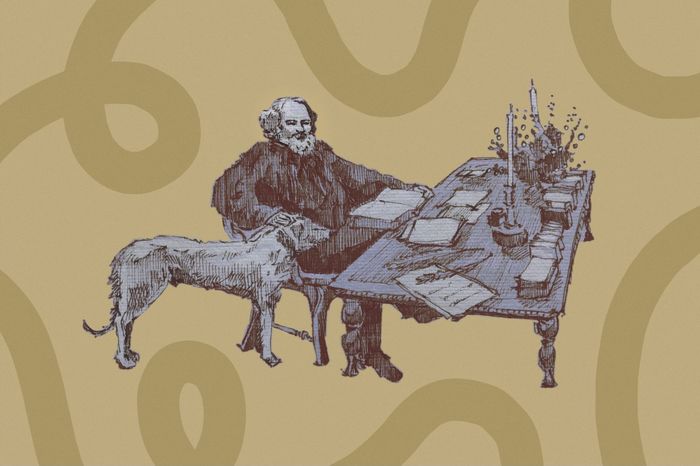The first Frost of winter
Emily Cushion braves Bridgemas with the help of Robert Frost’s poetry

Once again, Michaelmas has evaded me. Walking through Sidge recently, I noticed that the branches of the gingko trees were becoming bare, and lamented to my finalist friends that this is the last time we’ll see those yellow leaves circling the concrete. Every year it happens: you write a few essays, and suddenly you can’t walk to lectures without a coat, or hearing people discuss ‘Bridgemas’ plans. And it’s already too late; winter is coming.
“In a poem shrouded in darkness, Frost’s twinklings of light certainly shine”
There are two types of people when it comes to reckoning with this. Number one: those who launch themselves into their studies, hoping that prolonging the working day might delay the season’s arrival (you can’t hear carols if you spend evenings in the library instead of the chapel). And number two: those who put on their impulse-bought college scarf from Ryder & Amies before ambling down to the Christmas market on Parker’s Piece. Having played Christmas music every day post Halloween bop, I am more than happy to embrace the Cambridge winter in this second manner. My favourite way of doing so – aside from one too many mulled wines at the formal – is by ending the day with a Robert Frost poem.
Even if you don’t know much about the poet, I can almost guarantee you’ll have heard this wintry quatrain:
“The woods are lovely, dark and deep,
But I have promises to keep,
And miles to go before I sleep,
And miles to go before I sleep.”
Written nearly a century ago, these lines from ‘Stopping by Woods on a Snowy Evening’ have stood the test of time – a Cambridge term is just like this “lovely, dark and deep” forest: dense and slightly scary, but beautiful all the same. And I definitely feel I have “miles to go before I sleep” when I clock in for a late library session the night before a deadline.
On these lonely Cambridge winter evenings, I turn to ‘An Old Man’s Winter Night’ for some poetic company to alleviate my essay-induced isolation. In a poem shrouded in darkness, Frost’s twinklings of light certainly shine: the “separate stars” of frost on the window; the “broken moon” to which he consigns the “icicles along the wall”. What Frost chooses to illuminate here is snow; glowing in the dark is the company of the icicles and the “snow on the roof” – providing emotional warmth no matter how physically cold. Both of these are preceded by the possessive pronoun “his”; Frost’s ‘Old Man’ takes an aspect of winter and makes it his own, something I think each of us should do in Cambridge.
“Frost advocates for an appreciation of winter grounded in nature”
My friends and I have our own – slightly dysfunctional – traditions: telling each other who we have for Secret Santa; getting covered in icing during gingerbread decorating; planning to attend but inevitably missing the light switch-on (in our defence, it’s basically in early November). The speaker in Frost’s ‘Christmas Trees’ has a different winter ritual: growing a forest of “fir balsams”. Despite a stranger’s attempt to buy a thousand of the trees, the speaker’s refusal to sell them means his tradition survives falling into the Christmas consumerist trap (I say this as the proud owner of an official Cambridge University bauble).
Keeping his trees firmly rooted, Frost advocates for an appreciation of winter grounded in nature. ‘Dust of Snow’ encapsulates this in its eight lines:
“The way a crow
Shook down on me
The dust of snow
From a hemlock tree
Has given my heart
A change of mood
And saved some part
Of a day I had rued.”
Here, snowfall is not singly but triply bound up with nature; snow falls onto a tree, from which a crow shakes it onto the speaker. The speaker becomes embedded within the natural landscape, inspiring an emotional change as they are “dusted” with snow. And we can learn from Frost here about winter’s potential to change us. Though we might not see any snow in Cambridge before the end of term, we can find solace in a trip to the botanic gardens, or watching squirrels scurry about college finding food to store for winter (just like how we stock up on Bailey’s and Quality Street). Frost reminds us of the true beauty of winter, located within its nature – through his poetry, and through his name.
 News / Judge Business School advisor resigns over Epstein and Andrew links18 February 2026
News / Judge Business School advisor resigns over Epstein and Andrew links18 February 2026 News / Hundreds of Cambridge academics demand vote on fate of vet course20 February 2026
News / Hundreds of Cambridge academics demand vote on fate of vet course20 February 2026 News / Petition demands University reverse decision on vegan menu20 February 2026
News / Petition demands University reverse decision on vegan menu20 February 2026 News / CUCA members attend Reform rally in London20 February 2026
News / CUCA members attend Reform rally in London20 February 2026 News / Caius students fail to pass Pride flag proposal20 February 2026
News / Caius students fail to pass Pride flag proposal20 February 2026










